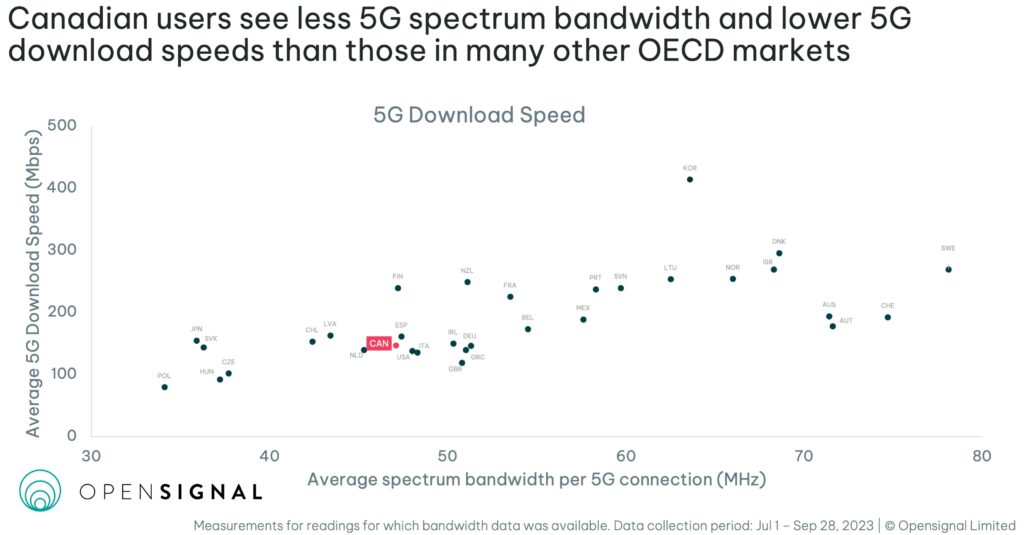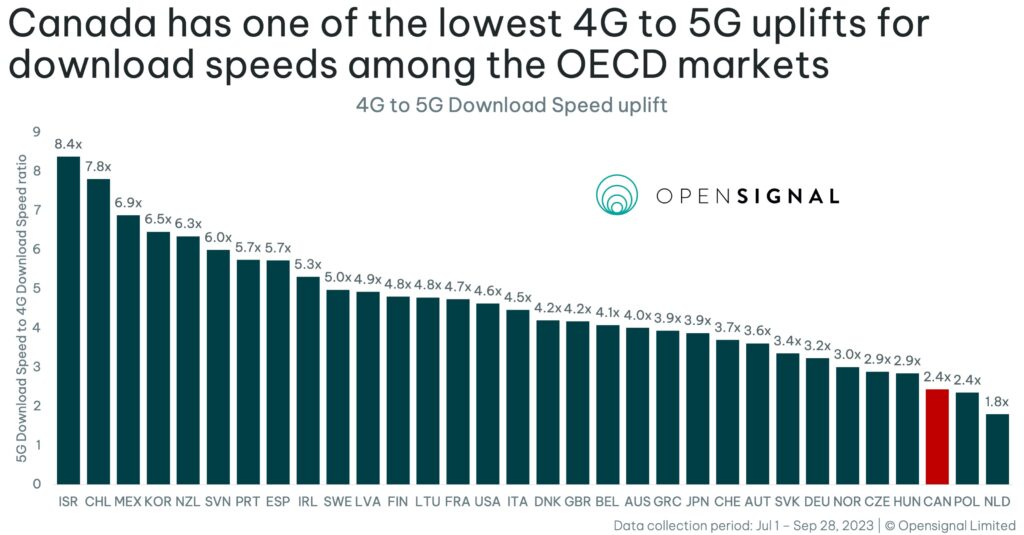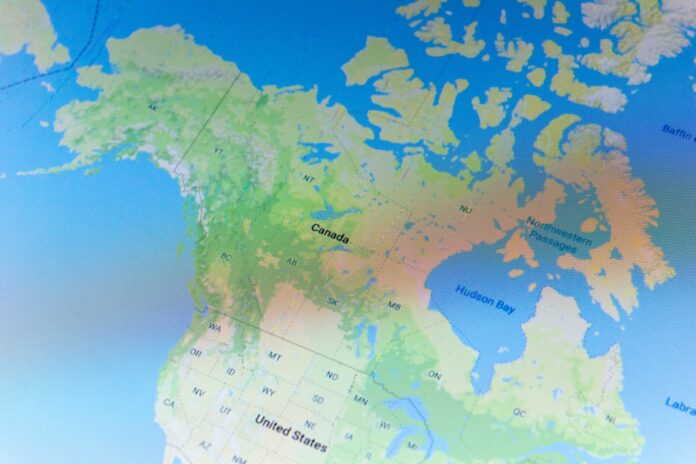A relatively low share of the 3.5 GHz band used for 5G connections can be a reason behind Canada’s predicament, says Opensignal
According to new research from Opensignal, Canada lags behind other OECD (Organization for Economic Co-operation and Development) members when it comes 5G download speed, despite boasting one of the fastest average 4G download speeds, which comes in at 61.2 Mbps. The firm further explained that this can be explained, partly, by the use of smaller 5G spectrum bandwidths, as well as a relatively low share of the 3.5 GHz band used for 5G connections.

Specifically, Canada has an average 5G spectrum capacity of 47.1 MHz and a 5G download speed that comes in at 146.4 Mbps, which Opensignal found to be “significantly below average” when compared against the 31 OECD members that have already deployed 5G services commercially at a large scale.
“Comparing the 4G to 5G uplift for download speed experience across 32 OECD member states — those that have commercially deployed 5G services on a large scale — reveals that Canada has one of the lowest ratios between 5G Download Speed and 4G Download Speed in the observed group, of 2.4 times,” wrote Opensignal Analyst Robert Wyrzykowski.
This ratio, he continued, is comparable to other countries like Poland whose 3.5 GHz band assignment for mobile were delayed. Canada, for example, postponed its 3.5 GHz spectrum auction process to allow the telecommunications industry to maintain its focus on providing essential services to Canadians during the COVID-19 pandemic.
On the other hand, the OECD members able to secure earlier access to this band for 5G, saw much better ratios of 4G to 5G speeds. Opensignal users in Israel, for example, see 8.4 times faster 5G Download Speed than 4G Download Speed, while in Chile, user experienced a 7.8 times uplift and in South Korea, that uplift was 6.5 times.

Delving deeper into the impact of how the 3.5 GHz band is being used, Opensignal looked at the proportions of 5G readings on spectrum bands between 3 GHz and 5 GHz and found that only 27.7% of Opensignal 5G readings in Canada are on the 3.5 GHz band, which is one of the lowest results in the OECD.
However, Wyrzykowski said he expects spectrum availability in Canada is likely to improve soon, pointing to the Ministry of Innovation, Science and Industry’s January 2023 assignment of previously unsold spectrum licences in the 600MHz, 2.5GHz and 3.5GHz bands to both national and regional operators. “Furthermore, the Canadian government is in the process of auctioning 250 MHz of 3.8GHz spectrum in the 3650-3900MHz frequency range, with 22 applicants qualified for the spectrum auction,” he continued. “Together with the already existing spectrum in the 3.5GHz band, new spectrum assets in the 3.8GHz band should boost the capacity of Canadian 5G networks and improve the country’s 5G experience, making Canada more competitive against other markets worldwide.”

